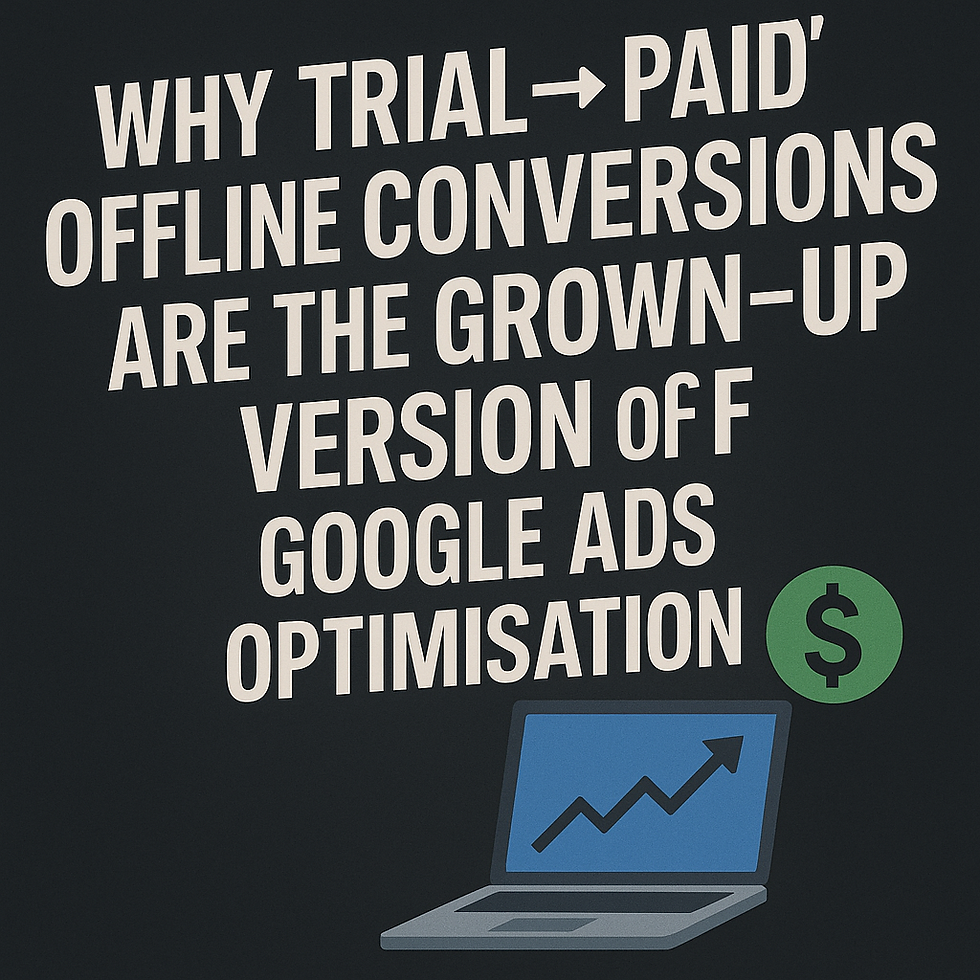Does Paid advertising directly boosts my organic ranking?
- Veronika Höller
- 20. Nov. 2024
- 3 Min. Lesezeit
Are you diligently running Google Ads, but your boss keeps asking why your organic rankings aren't skyrocketing? Or are you wondering if you even need a landing page when you can simply link to your website? Then you've come to the right place! In this blog post, I'll debunk persistent myths and reveal the fascinating relationship between paid advertising and SEO.
Myth 1: "Paid advertising directly boosts my organic ranking!"
Sorry, but that's a fairy tale. Google is smart, and if it were that easy, everyone would just run ads! Your ad budget flows into a separate auction system, while organic ranking depends on completely different factors: relevance of your content, authority of your website, user experience, and technical aspects.
Think of the restaurant example: Paid advertising is like a flyer that attracts people to your restaurant. But whether they come back and recommend you depends on your food, service, and atmosphere - not the flyer itself!
Myth 2: "User signals from paid traffic are irrelevant for SEO."
Wrong! While Google doesn't directly use user signals from paid traffic for organic ranking, they do provide valuable information. If users who come via your ad stay on your site for a long time, interact with it, and visit other pages, that's a positive sign for Google.
Imagine this: You write a blog post and promote it with an ad. The ad itself won't get you into the top 10 search results. But if many readers come via the ad, share the article, and leave comments, your chances of a better ranking increase!
In-depth analysis: How user signals from paid ads support your SEO:
Relevance boost: User behavior on your site (dwell time, clicks, interactions) shows Google how relevant your content is to the search query.
Content optimization: Through A/B testing with ads and landing pages, you can find out which content and offers really interest your target audience and optimize your website accordingly.
Indirect backlinks: More visibility through ads can lead to more backlinks, which strengthen your organic ranking.
Faster crawling: Paid advertising helps Google find and index your website faster.

Landing page or website - the key question!
Don't worry, I won't leave you alone with this question! Here are a few things to consider:
Landing page:
Pro: Laser-focused on one goal, higher conversion rate, ideal testing environment.
Con: More effort, SEO challenge, potential brand inconsistency.
Website:
Pro: Easier, SEO-friendly, strengthens brand consistency.
Con: Less relevant, more distraction, more difficult tracking.
My tip: For specific campaigns with a clear goal (e.g., product launch), landing pages are great! For general campaigns to increase brand awareness, linking to your website is often sufficient.
The secret synergy: How SEO and paid ads benefit from each other
Although they take different paths, paid advertising and SEO can complement each other wonderfully:
Faster indexing: Ads get your new website on Google's radar faster.
Brand awareness: Ads make users aware of your brand, and they may search for you directly later - organic traffic!
Data analysis: Paid campaigns provide valuable data for optimizing your SEO strategy.
Backlinks: Increased visibility through ads can lead to more backlinks that boost your organic ranking.
Conclusion - A dream team for online success!
Paid advertising and SEO are not rivals, but partners! Use both strategically to achieve your online goals. Remember: High-quality content and a user-friendly website are the foundation for long-term success - whether organic or paid! And don't forget: Even if paid ads don't directly affect your organic ranking, they do make an indirect contribution to your SEO success through user signals, brand awareness, and valuable data.



Kommentare